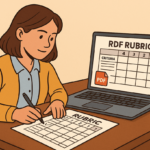Preparing for your first CNA job interview after graduating from your CNA training program can feel overwhelming. However, with the right tools and mindset, you can confidently navigate the interview process and secure your ideal position. Below are key CNA job interview tips tailored for 2025 to help you stand out from the competition and make a lasting impression.
1. Research the Facility Thoroughly
The nursing CNA job market remains highly competitive, and employers seek candidates who demonstrate genuine interest in their organization. Before your interview, research the healthcare facility, including its mission statement, patient demographics, and values. Explore recent news updates, advancements, or policy changes affecting the institution. Additionally, reviewing employee feedback on platforms like Glassdoor or Indeed can provide insight into workplace culture.
2. Prepare for Common Interview Questions
Many healthcare facilities ask standard CNA interview questions, so practicing your responses in advance will boost your confidence. In 2025, interviewers increasingly focus on behavioral and situational questions to assess critical thinking and adaptability. Common questions include:
- Describe a time when you provided exceptional patient care.
- How do you manage stress and prevent burnout?
- Tell me about a difficult situation with a patient or family member and how you handled it.
- Why do you want to work at our facility?
Prepare specific examples from your CNA training, clinical rotations, or previous work experience to showcase your problem-solving and teamwork skills.
3. Emphasize Your Technical and Soft Skills
With advancements in healthcare technology, CNAs are now expected to be comfortable using electronic health records (EHR) systems and digital communication tools. Be prepared to discuss any experience you have with these technologies. Additionally, highlight essential soft skills such as empathy, communication, and adaptability, which remain critical in patient care.
4. Dress Professionally and Maintain a Confident Demeanor
First impressions matter. While business casual attire is generally acceptable, some facilities may prefer professional medical attire, such as scrubs. When in doubt, opt for a polished and professional look that reflects your commitment to the role. During the interview, maintain eye contact, offer a firm handshake (if in person), and convey enthusiasm for the position
5. (2025 Bonus Tip) Ask Thoughtful Questions
Interviewers appreciate candidates who engage in meaningful dialogue. Prepare a few thoughtful questions to ask at the end of the interview, such as:
- What are the biggest challenges CNAs face in this facility?
- How does the organization support professional growth and continuing education?
- Can you describe the typical patient load for CNAs here? These questions demonstrate your proactive approach and eagerness to excel in the role.
6. Follow Up with a Thank-You Note
Once your interview is complete, send a personalized thank-you email within 24 hours. Express gratitude for the opportunity and reiterate your enthusiasm for the role. A well-crafted follow-up can set you apart from other candidates and reinforce your professionalism.
Start Your CNA Career with Confidence at SisuCare Education
At SisuCare Education, we are dedicated to helping aspiring nursing assistants launch their careers. As one of California’s top CNA schools, our hybrid and online CNA training programs are designed to provide hands-on experience and job placement assistance. Whether you’re just starting or looking to advance in healthcare, we’re here to support your journey. Begin your CNA career with confidence, enroll with SisuCare today!
Frequently Asked Questions
1. How can I prepare for behavioral interview questions?
Practice structuring your responses using the STAR method (Situation, Task, Action, Result). Think of specific examples from your training or previous experiences that demonstrate your skills and adaptability.
2.What are some thoughtful questions I can ask the interviewer?
Consider asking about the challenges CNAs face at the facility, opportunities for professional growth, or details about the typical patient load. This demonstrates your proactive approach and eagerness to excel in the role.
3.What if I don’t have much experience to draw from?
Focus on examples from your CNA training, clinical rotations, or volunteer work. Highlight transferable skills such as teamwork, communication, and problem-solving that you’ve developed in various contexts.
4. What if I don’t get the job after my first interview?
Don’t be discouraged! Use it as a learning experience. Seek feedback if possible, reflect on areas for improvement, and continue applying to other positions. Persistence is key in launching your nursing career.












